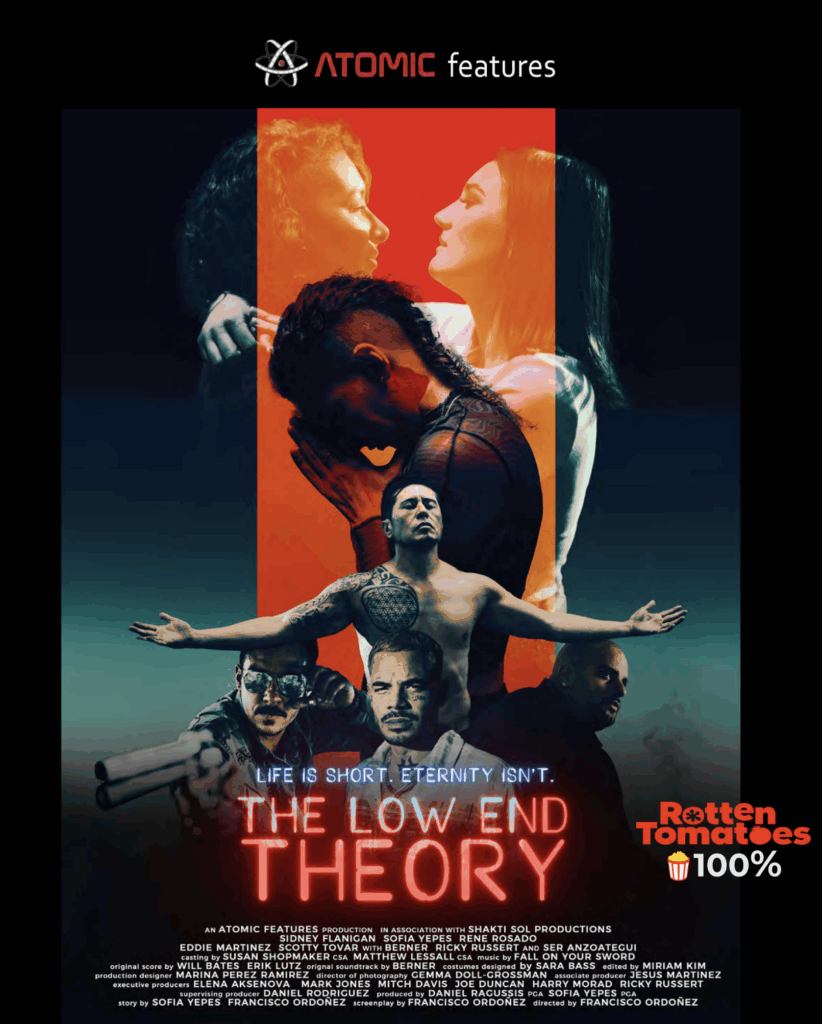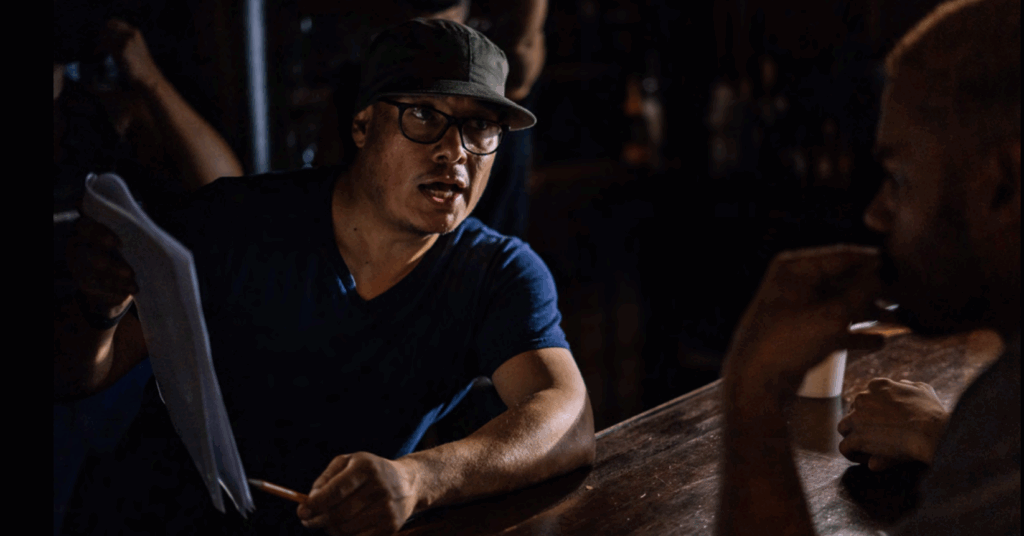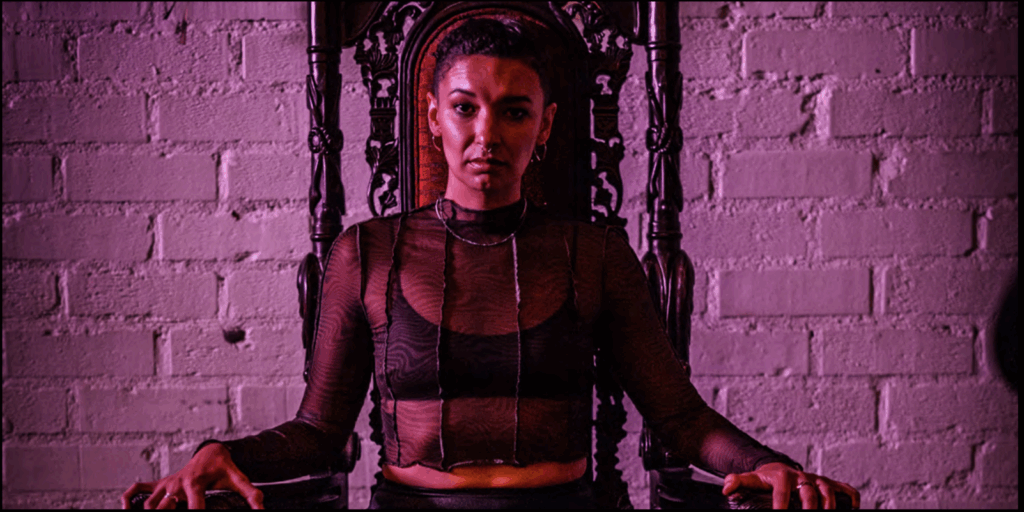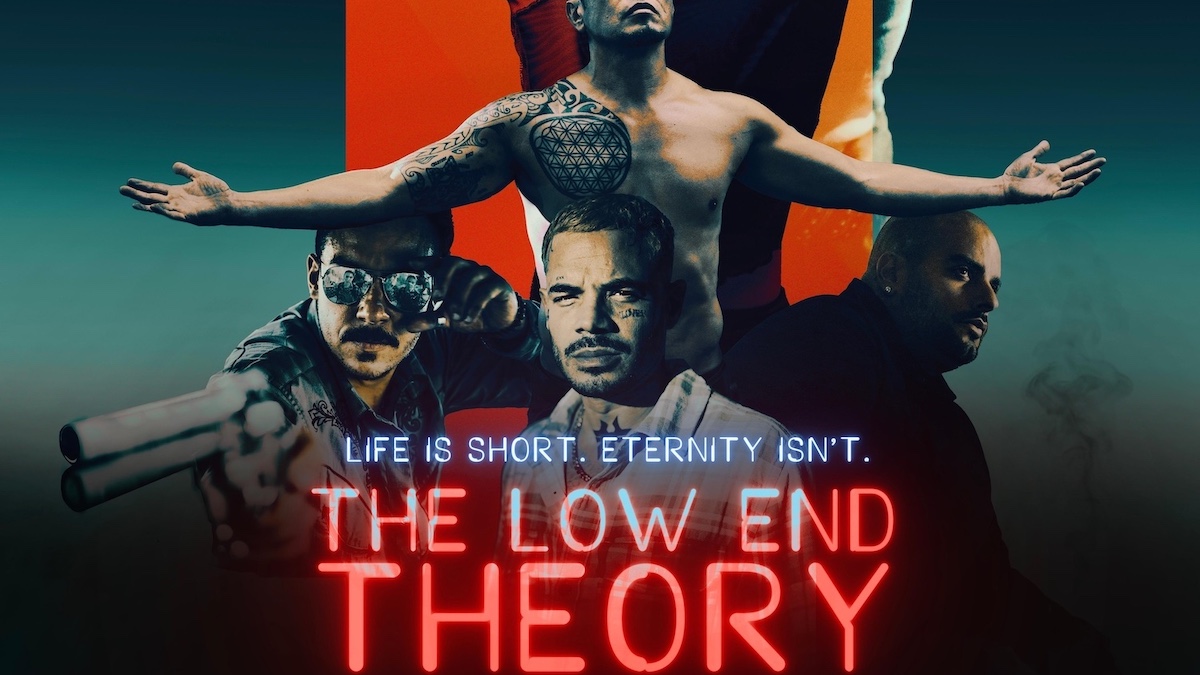By Carlos Aguilar
Crossing the concrete landscape of Los Angeles on public transport with precious cargo, Raquel (Sofia Yepes), a queer Latina aspiring to become a major music producer, is also carrying plenty of personal baggage wherever she goes. Her main occupation is working for a drug dealer, which comes with dangerous liabilities. Add to that her turbulent, unresolved past in the military, and the result is a ticking time bomb of pent-up rage.

When Raquel runs into Veronica (Sidney Flanigan), a frazzled, but charming young woman who also claims to have creative dreams, she sees an opportunity for a fresh start. Best known for her lead role in the acclaimed indie Never Rarely Sometimes Always, Flanigan plays the part with believable fragility, while slowly revealing a more complex personality underneath the defenseless façade. Their serendipitous encounter is the foundation of the sleekly shot moody crime thriller The Low End Theory from writer-director Francisco Ordonez. Their instant connection spells trouble for Raquel, who willingly takes major risks both on the romantic and professional front in order to pursue this incandescent fling.
From their first time the two women meet inside Raquel’s car, cinematographer Gemma Doll-Grossman’s camera becomes attached to their faces. The dance of intensely tight closeups playing with colorful lighting is how we come to understand the fiery spontaneity of what Veronica and Raquel feel for each other—whether at the club or during a moment of sexual intimacy. The camera can’t get any closer, and that’s an effective choice on Ordonez and Doll-Grossman’s part to communicate the raging emotions at play.
But Raquel has a partner, Giselle (Ser Anzoategui), who happens to be the sister of her boss Uly (Eddie Martinez), a drug lord with a conscience. Then there’s the menacing presence of Efraim (Rene Rosado), her co-worker and the person with whom she creates music. All of these relationships, as well as Uly’s ill-obtained cash become entangled in a series of lies and terrible consequences that Raquel sets in motion in order to protect Veronica, who owes money to other nefarious parties that threaten to hurt if she doesn’t pay it back.

For as much as The Low End Theory surrenders to well traveled paths when it comes to urban stories with a protagonist involved in illicit activities, the central relationship between Raquel and Veronica rings refreshing even when the screenplay leans into expected tropes.
Yet, it’s Yepes’ convincingly layered performance as someone guided by a belief in a higher power, namely karmic forces, that keeps one invested in the narrative. Yepes remarkably conveys a cocktail of conflicted sentiments, particularly because of the clash between the positive light in which others see Raquel, and the dark, violent thoughts that plague her mind. There admittedly too many facets of Raquel’s world on display for any of them to truly take precedence. Thankfully Yepes remains consistently compelling through it all.

Though far from entirely unique, The Low End Theory packs enough visual panache and the kinetic flourishes of Ordonez’s direction to result in an engaging neo-noir effort with characters who rarely get to be at the center of a story like this and where even the supporting parts benefit from above-average acting.



